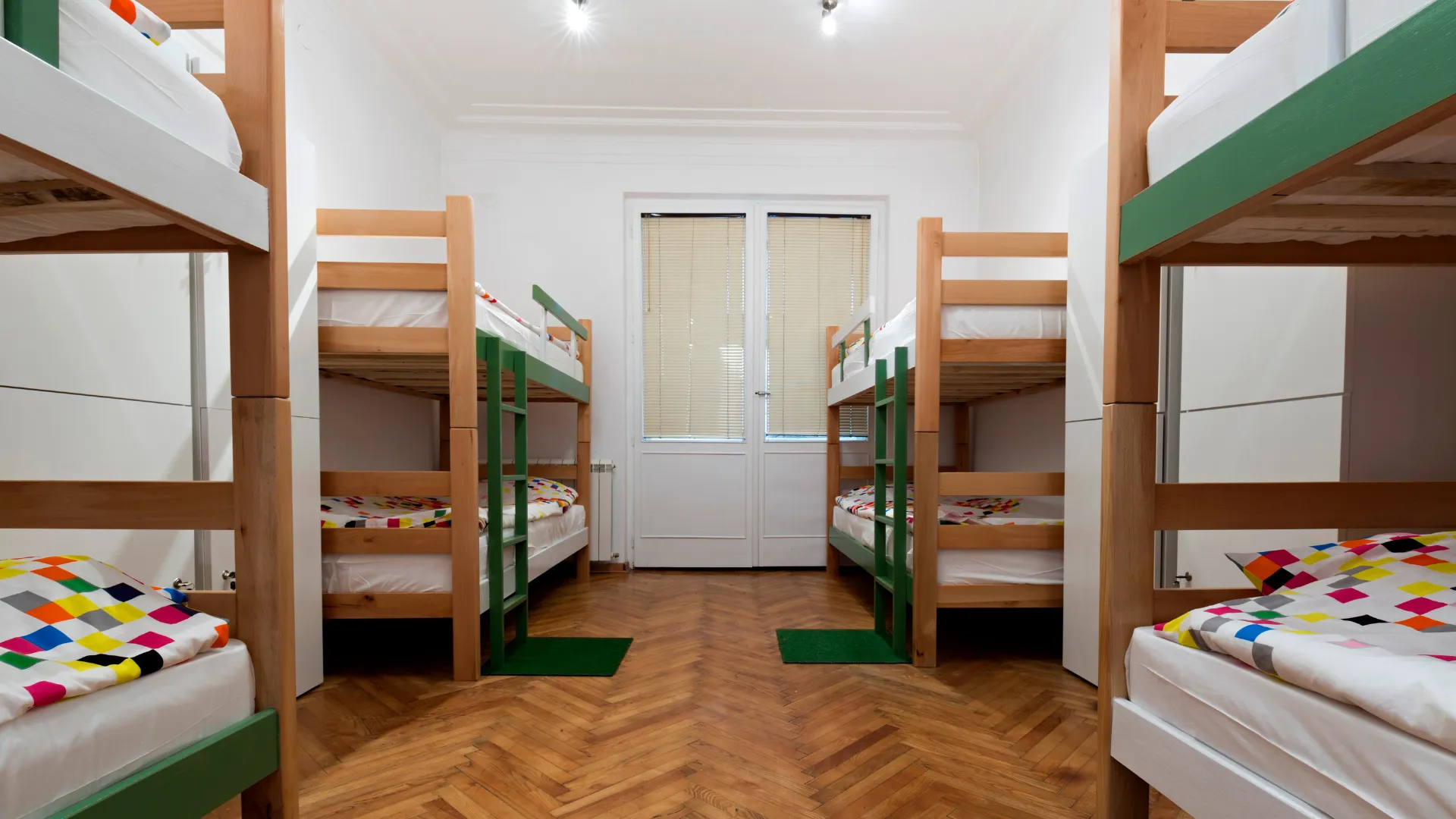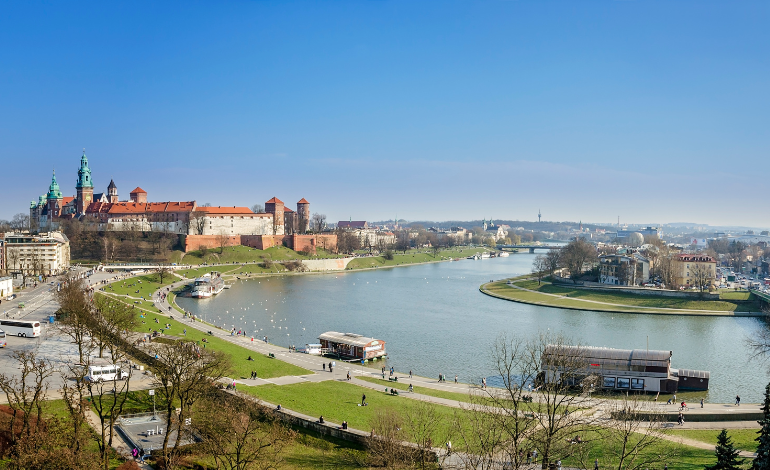Comparing Poland to Other EU Countries: Which Offers the Best Opportunities for Migrants?

The allure of Western Europe has long captivated those seeking better economic prospects, but recently, Eastern European nations like Poland have emerged as potential alternatives. Boasting rapid economic growth and a relatively lower cost of living compared to countries like Germany or France, Poland presents itself as an attractive destination for economic migrants. However, a closer examination reveals a complex reality that challenges the simplistic narrative of Poland as a land of opportunity. This article will dissect several key aspects of migrant life in Poland, comparing them to other EU nations, and ultimately argue that the supposed advantages of migrating to Poland often fall short of expectations, making other EU countries more viable options for long-term success and integration. We will explore the cost of living, job market realities, bureaucratic hurdles, social safety nets, and the overall long-term appeal, providing a nuanced perspective beyond the initial rosy picture.
Poland’s recent economic surge has undoubtedly created jobs and attracted foreign investment. This, coupled with the country’s membership in the European Union, which guarantees free movement of labor, has fueled the perception of Poland as a burgeoning economic hub. Furthermore, the ongoing conflict in Ukraine has led to an influx of refugees, further straining resources and potentially impacting the employment landscape for other migrants. While the initial response to the Ukrainian refugee crisis was commendable, the long-term implications for the Polish economy and its ability to absorb additional migrants from various backgrounds remain uncertain.
This analysis will not merely dismiss Poland as a poor choice for migrants. Instead, it seeks to provide a realistic assessment of the challenges and limitations, contrasting them with the opportunities available in other EU countries. By delving into the specifics of each area, we aim to empower potential migrants with the knowledge necessary to make informed decisions about their future. The goal is to move beyond the superficial appeal of lower costs and explore the deeper, often less advertised, realities of life in Poland compared to its Western European counterparts.
Poland vs. EU: A False Dawn for Economic Migrants?
Initial comparisons between Poland and Western EU nations often focus on headline figures like GDP growth and unemployment rates. While Poland’s economic expansion has been impressive, these numbers often mask significant disparities in income, job security, and overall quality of life. While the average GDP may look promising, the distribution of wealth is far from equitable, meaning many migrants find themselves struggling with wages significantly lower than those offered in countries like Germany or the Netherlands for comparable work. The promise of rapid economic growth doesn’t necessarily translate into tangible improvements in the lives of all residents, especially newly arrived migrants.
Furthermore, the availability of jobs in Poland often comes with the caveat of precarious employment conditions. Temporary contracts, zero-hour contracts, and a prevalence of informal work are more common in Poland than in many Western EU countries. This lack of job security leaves migrants vulnerable to exploitation and economic instability. The allure of finding a job can quickly fade when faced with the reality of working under unfavorable conditions with limited legal protection. Migrants seeking long-term career stability and financial security may find Poland’s job market less appealing compared to the more regulated and secure environments of other EU nations.
In contrast, countries like Germany and France, while potentially requiring more upfront investment in terms of language skills and initial expenses, offer a more established and robust social welfare system, stronger labor laws, and a greater emphasis on worker rights. While the cost of living may be higher, the potential for higher wages, better benefits, and greater long-term financial security often outweighs the initial financial burden. The perceived ‘false dawn’ of economic opportunity in Poland stems from a failure to fully consider the complexities of the labor market and the overall living conditions beyond the initial allure of a ‘cheaper’ destination.
Cost of Living Deception: Poland’s Affordability Myth
While Poland is often touted as an affordable alternative to Western European nations, the reality is more nuanced. While certain aspects of life, such as rent outside of major cities, might initially seem cheaper, this advantage diminishes when considering the lower average wages. A smaller percentage of income may be spent on rent, but a larger percentage is often dedicated to other necessities due to lower purchasing power. This ultimately reduces the amount of disposable income available for savings, investments, or simply enjoying leisure activities.
Furthermore, the cost of essential goods and services, such as food, utilities, and transportation, is often comparable to, or even higher than, in some Western EU countries when considered relative to average income. For example, while a loaf of bread might cost less in Poland, the difference in price may not be significant enough to offset the substantially lower wages. This disparity further exacerbates the financial challenges faced by migrants, particularly those with families to support. The affordability “myth” often neglects the crucial element of purchasing power parity.
Consider also the longer-term costs associated with living in Poland. Access to quality healthcare can be expensive, and private insurance, while relatively affordable, adds another layer of financial burden. Furthermore, the availability of affordable and quality childcare is often limited, particularly in smaller towns and rural areas. These hidden costs can quickly erode the perceived financial advantages of living in Poland, making the initial affordability less appealing in the long run compared to countries with stronger social safety nets and higher wages.
Job Market Realities: Poland’s Skill-Mismatch Crisis
Poland’s job market, while growing, suffers from a significant skill-mismatch problem. Many available jobs require specific technical skills that are not readily available among the migrant population, while other jobs are low-skilled and low-paying, offering limited opportunities for career advancement. This discrepancy leads to a situation where many migrants are forced to accept jobs below their skill level, resulting in underemployment and limited earning potential. The initial hope of securing a fulfilling and well-paying job can quickly turn into frustration and disappointment.
Furthermore, language barriers often exacerbate the skill-mismatch crisis. While English proficiency is increasingly common in Poland, particularly in larger cities, fluency in Polish is often essential for securing higher-skilled positions. Migrants who lack strong Polish language skills are often relegated to low-paying jobs with limited prospects for advancement. This linguistic barrier effectively limits their access to better opportunities and perpetuates a cycle of underemployment.
In contrast, other EU countries, such as Germany and the Netherlands, often have more robust programs in place to assist migrants in acquiring the necessary skills and language proficiency to integrate into the labor market. These programs provide valuable resources and support, increasing the likelihood of migrants finding suitable employment and achieving long-term career success. The ability to access relevant training and language support is a significant advantage that makes these countries more attractive options for migrants seeking to overcome the challenges of skill-mismatch and language barriers.
Bureaucracy and Barriers: Integration Challenges in Poland
Navigating the Polish bureaucracy can be a daunting task for migrants. Obtaining the necessary permits, registering with the authorities, and accessing essential services often involves navigating a complex and opaque system. Language barriers, coupled with a lack of clear and accessible information, can further complicate the process, leading to frustration and delays. This bureaucratic burden can significantly hinder the integration process and make life unnecessarily difficult for newly arrived migrants.
Furthermore, discrimination and xenophobia, while not necessarily widespread, remain a concern in Poland. Migrants from certain regions or with particular ethnic backgrounds may face prejudice and discrimination in the job market, housing market, and other areas of life. This can create a hostile environment and make it difficult for migrants to feel welcome and integrated into Polish society. The lack of strong anti-discrimination laws and enforcement mechanisms further exacerbates the problem.
Compared to other EU countries with more established and comprehensive integration programs, Poland lags behind in providing adequate support to migrants. While there are some initiatives aimed at assisting migrants, they are often underfunded and lack the resources to effectively address the diverse needs of the migrant population. This lack of comprehensive support can make the integration process more challenging and hinder the ability of migrants to thrive in Polish society. Countries like Sweden and Canada often provide far more robust support networks, making integration a more achievable goal.
Social Safety Nets: Poland’s Limited Migrant Support
Poland’s social safety net, while providing some basic support, is generally less generous and less accessible to migrants compared to those in many Western EU countries. Access to unemployment benefits, healthcare, and other social services is often contingent on meeting specific eligibility criteria, which can be difficult for newly arrived migrants to satisfy. This limited social support leaves migrants vulnerable to economic hardship and social exclusion.
Furthermore, the level of social assistance provided in Poland is often insufficient to meet the basic needs of migrants, particularly those with families to support. The cost of living, coupled with low wages and limited access to social services, can create a situation where migrants struggle to make ends meet and face significant financial insecurity. This lack of adequate social support can have a detrimental impact on their well-being and hinder their ability to integrate into Polish society.
In contrast, countries like Germany, France, and the Nordic nations offer more comprehensive and generous social safety nets, providing a stronger safety net for migrants who experience unemployment, illness, or other challenges. These countries recognize the importance of providing adequate social support to ensure that all residents, including migrants, have the opportunity to live with dignity and participate fully in society. The difference in the level of social support available is a significant factor to consider when deciding where to migrate within the EU.
Eastern Promises? Questioning Poland’s Long-Term Appeal
While Poland may offer some short-term benefits to certain migrants, its long-term appeal is questionable. The combination of low wages, limited social support, bureaucratic hurdles, and integration challenges can make it difficult for migrants to build a secure and fulfilling life in Poland. The initial allure of affordability can quickly fade when faced with the realities of the Polish job market and social environment.
Furthermore, the long-term economic prospects of Poland are uncertain. While the country has experienced rapid economic growth in recent years, this growth is not guaranteed to continue indefinitely. Economic downturns or unexpected events could significantly impact the job market and the overall living conditions for migrants. The lack of robust social safety nets would leave migrants particularly vulnerable during times of economic hardship.
Ultimately, the decision of where to migrate is a personal one that depends on individual circumstances and priorities. However, when considering the long-term prospects for economic success, social integration, and overall quality of life, other EU countries may offer more compelling opportunities for migrants. The “Eastern promise” of Poland should be viewed with caution, and potential migrants should carefully weigh the benefits and drawbacks before making a decision that could significantly impact their future.
While Poland presents itself as a viable alternative for economic migrants seeking opportunities within the EU, a deeper analysis reveals a complex and often challenging reality. The allure of a lower cost of living is often offset by lower wages, precarious employment conditions, and a less generous social safety net. The job market suffers from a skill-mismatch crisis, and bureaucratic hurdles can hinder the integration process. Furthermore, the long-term economic prospects of Poland are uncertain, and the level of social support available to migrants is limited compared to many Western EU countries.
In contrast, countries like Germany, France, and the Netherlands, while potentially requiring more initial investment, offer a more robust and stable environment for migrants. They provide better opportunities for career advancement, stronger social safety nets, and more comprehensive integration programs. While the cost of living may be higher, the potential for higher wages, better benefits, and greater long-term financial security often outweighs the initial financial burden.
Therefore, while Poland may be a stepping stone for some, for many economic migrants seeking long-term stability, integration, and a better quality of life, other EU countries offer more compelling and sustainable opportunities. The “false dawn” of economic opportunity in Poland serves as a cautionary tale, highlighting the importance of conducting thorough research and considering all factors before making the life-altering decision to migrate. Potential migrants should carefully weigh the benefits and drawbacks of each destination, focusing not just on the initial allure of affordability, but also on the long-term prospects for economic success, social integration, and overall well-being.











